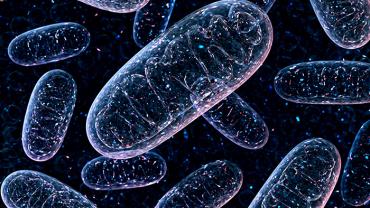
Mitochondria are cellular components essential for energy production and many other biochemical processes in the human body. The function of mitochondria is dependent on a molecule called nicotinamide adenine dinucleotide (NAD+). NAD+ supports more than 500 biochemical reactions, including cellular energy production, DNA repair, and stress response.
Nicotinamide riboside (NR) is a variation of vitamin B3 (niacin) and is a building block for NAD+. Recent research indicates that supplementation with NR may support mitochondrial function and promote healthy NAD+ status.
Approximately 1,500 mitochondrial genes have been identified; mutations may be linked to mitochondrial dysfunction. Mitochondrial disorders have been linked to more than 300 mitochondrial genes.
Mitochondrial disorders are a common cause of inherited metabolic disease in both children and adults. They can impact every system of the body. A controlled animal study administered NR to mouse models simulating mitochondrial myopathy. The treatment period lasted for 16 weeks. At the end of the study, NR was reported to increase mitochondrial mass, help attenuate mitochondrial DNA mutations, help promote mitochondrial biogenesis, and improve mitochondrial structure.
A randomized, crossover, controlled clinical trial by Martens and colleagues explored the efficacy of supplementation of NR with 60 individuals between 55 and 79 years of age. A preliminary treatment period consisted of 500 mg twice-daily supplementation with NR as Niagen® for 6 weeks. NR was shown to increase NAD+ levels in peripheral blood mononuclear cells by approximately 60% as compared to a placebo. Increases in metabolites related to cellular energy production and metabolism such as adenosine triphosphate (ATP) were also reported.
Changes related to cardiovascular function were also observed by Martens and colleagues. In individuals with stage 1 hypertension, the NR treatment group was shown to have a lower systolic blood pressure with a mean of 9 mmHg when compared to similar individuals receiving a placebo. NR was also shown to help reduce mean carotid-femoral pulse wave velocity, particularly in individuals with higher baseline blood pressure. No serious adverse effects were reported in the trial. NR was also reported to be well-tolerated and no niacin-related flushing was observed.
Lifestyle factors, such as exercise, may also support mitochondrial health. Endurance exercise has been shown to help support mitochondrial biogenesis in brain tissue and skeletal muscle through the activation of the peroxisome proliferator-activated receptor-γ (PPAR-γ) coactivator 1α (PGC-1α) and other biochemical pathways.
NR is a precursor to NAD+ that may support healthy aging and cellular health. Supplementation with NR along with exercise may also promote mitochondrial health.
By Colleen Ambrose, ND, MAT